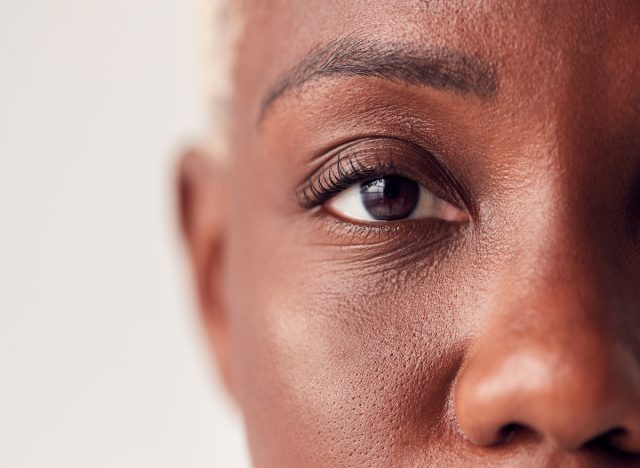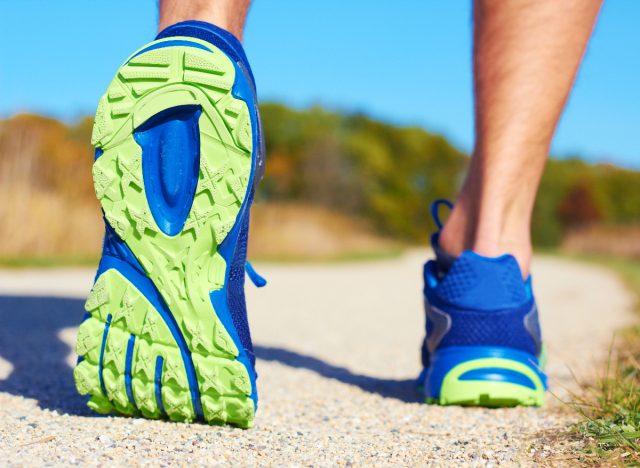These 4 Things Can Predict How Long You’ll Live, According to Science

One of the scariest unknowns for all human beings is how long you’ll live. You’ve likely heard time and time again that habits like getting in daily movement, having a positive mindset, eating healthily, staying social, and maintaining an active brain can help you lead a long, happy life. Longevity is something most if not all of us strive to achieve, and perfecting your daily routine even further can help you boost your chances of lengthening your lifespan. If you’re curious about how long you can expect to live, science says there are a few specific things that could predict your future.
We did the hard work for you and turned to scientific studies and research to determine how you can take a look down the road and potentially determine how long you’ll live. Does it account for getting hit by a bus? Of course not, but barring accidents or other outside forces, it can provide you with a solid sense of direction when it comes to necessary adjustments you might consider making in your day-to-day lifestyle.
Although you can’t take a drink from a real-life Fountain of Youth, if you’re looking for ways to live longer and better, consider taking a cue from the “healthiest, longest-lived people in the world,” according to the Blue Zones Power 9. These are the habits, rules, and lifestyle choices of individuals who live in destinations with the highest life expectancy. These destinations include the Barbagia region of Sardinia; Ikaria, Greece; Nicoya Peninsula, Costa Rica; Loma Linda, California; and Okinawa, Japan. The Power 9 consist of getting in daily natural movement (through hobbies like gardening), establishing a sense of purpose, following the 80% rule (aka, when the stomach is filled 80%, stop eating), eliminating stress, eating beans and plants, having a sense of belonging via faith, sipping moderate alcohol, being surrounded by family, and creating a solid group of quality friends.
So without delay, let’s get into what science has to say about the things that can predict how long you’ll live. And when you’re finished, be sure to read Celebs Are ‘Biohacking’ To Live Longer—and So Can You.
Your “retinal age gap”

By taking a look into your baby blues or hazel-hued eyes, you may be able to learn how long you’ll live. According to research conducted by the Center for Eye Research Australia and published in the British Journal of Ophthalmology, the “retinal age gap” could be a key indicator or “screening tool” in determining an individual’s longevity.
A significant amount of evidence suggests that the retina’s microvasculature can be a trusted indicator of your brain and circulatory system health. The researchers in this particular study looked at the difference between photos of the fundus, the interior back portion of the eye, and an individual’s actual age, which the scientists dubbed the “retinal age gap,” to see if it’s associated with an increased risk of mortality.
The findings? Big retinal age gaps in years were substantially linked to a 49% to 67% increased risk of mortality outside of cancer and cardiovascular disease. Adding a one-year increase to the retinal age gap resulted in a 2% bump in the risk of all-cause mortality and a 3% bump in the risk of mortality due to a specific issue outside of cancer and cardiovascular disease.
How much you walk every day

Walking is good for the mind, body, and soul. It can even help you live longer! So lace up your sneakers, and get ready to head outdoors for a good old-fashioned walk. But before you do, listen up.
You’re likely aware of the popular “10,000 steps a day” mentality, but there’s some conflicting research out there that questions this daily goal. In fact, according to a study published in JAMA International Medicine, you don’t really need to walk 10K steps daily in order to lead a long, healthy, and active life.
When it comes to the research, there were over 16,700 female participants with an average age of 72 years; their daily steps were measured over a seven-day timeframe. Women who got in an average of 4,400 steps each day substantially lowered their mortality rate over a follow-up period of 4.3 years, when compared to the females who weren’t very active and only raked in around 2,700 daily steps. The more steps women got, the death rates continued to decrease before establishing level ground at around 7,500 daily steps.
Your gait speed

Being able to successfully perform daily tasks and move properly as you age is a crucial aspect of remaining independent as you age. According to a study published in the Journal of Cachexia Sarcopenia and Muscle, there’s a super quick way to pinpoint how likely older adults are to lose their ability to complete daily activities and maintain their independence. The research shows that “slowness” is a telltale red flag of functional regress among older adults. Having a slow gait or slow walking speed can predict losing functional capacity down the road.
According to Tiago da Silva Alexandre, a professor at UFSCar’s Department of Gerontology and principal investigator for the study, via a press release, “Our study showed that measuring gait speed alone is sufficient for efficient prediction of loss of functional capacity in older adults. Based on our findings, we can say that slowness of gait precedes this loss by several years. This is an important result because it facilitates monitoring of the problem. It also enables not just physical therapists, clinicians, and geriatricians, but also any health professional to detect the risk.”
This 10-second balance test

Something as simple as balancing on one leg can give you insight into your future. A study published in the British Journal of Sports Medicine reveals that individuals who are middle-aged or older and are unable to balance on one leg for 10 seconds may be twice as likely to pass away within 10 years, compared to individuals who can ace the 10-second, one-leg balancing test.
The study looked at 1,700 participants between the ages of 51 to 75. The studied individuals were required to stand on one leg for 10 seconds without the help of added support. They stood with the foot of the raised leg placed to the back of the standing one and focused their gaze ahead with both arms at the sides of their body. Every participant was given three tries. One out of five participants failed the test. The likelihood of failing the balance test was heightened with age.
- Source: https://www.modernretina.com/view/difference-in-retinal-age-and-real-age-linked-to-increased-death-risk
- Source: https://jamanetwork.com/journals/jamainternalmedicine/fullarticle/2734709
- Source: https://onlinelibrary.wiley.com/doi/full/10.1002/jcsm.12810
- Source: https://www.eurekalert.org/news-releases/938693
- Source: https://www.bmj.com/company/newsroom/inability-to-stand-on-one-leg-for-10-seconds-in-mid-to-later-life-linked-to-near-doubling-in-risk-of-death/









